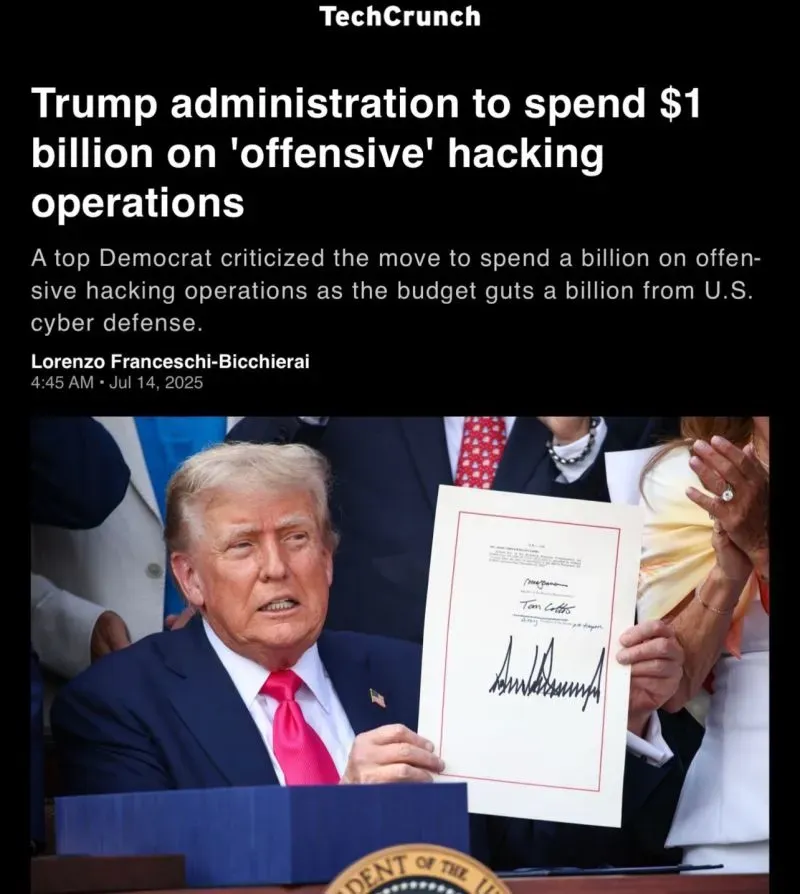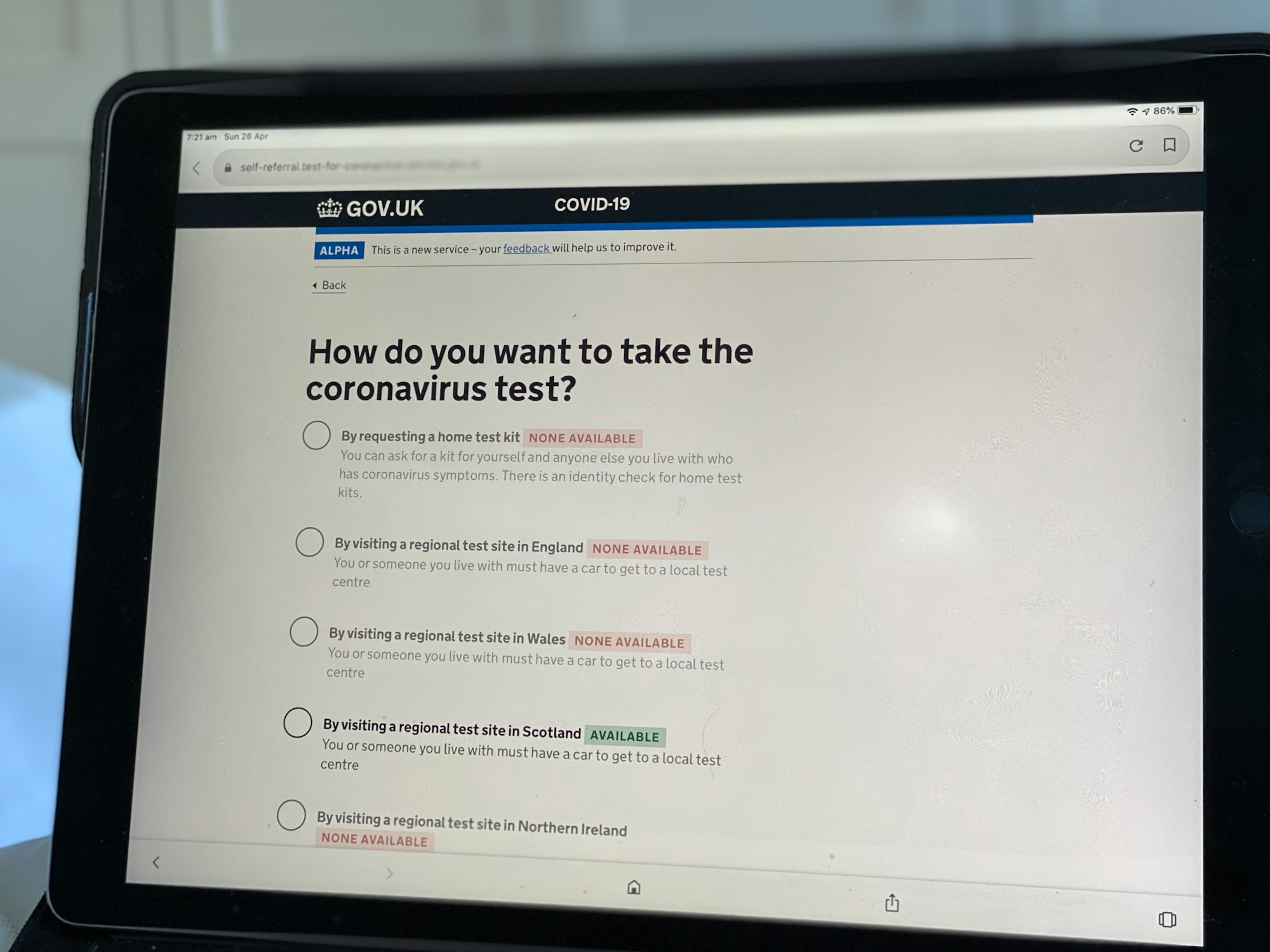CISA Under Siege: Trump's Nominee Promises Funding Amid Agency Overhaul

Sean Plankey faces heated confirmation hearing as cybersecurity agency undergoes dramatic downsizing and mission refocus
The nation's premier cybersecurity agency finds itself at a crossroads as Sean Plankey, President Donald Trump's nominee to lead the Cybersecurity and Infrastructure Security Agency (CISA), attempts to reassure lawmakers that he can secure adequate funding for an organization that has lost nearly one-third of its workforce and faces unprecedented budget cuts.

During his confirmation hearing before the Senate Homeland Security Committee on July 24, Plankey projected confidence despite the mounting challenges facing CISA, telling senators he has "no doubt" that DHS Secretary Kristi Noem would work with Congress to obtain necessary funding if he determines the agency's budget is insufficient to protect American critical infrastructure.
A Nominee Under Fire
The hearing revealed the political tensions surrounding CISA's evolving role under the Trump administration. Plankey, a former Energy Department cybersecurity official who previously served in Trump's first administration, faced sharp questioning from Democrats about his stance on election security—a contentious issue that has put CISA squarely in the administration's crosshairs.
When pressed by Sen. Richard Blumenthal (D-Conn.) about whether the 2020 election was "rigged or stolen," Plankey declined to definitively state that the elections were secure, saying he had "not reviewed any of the cybersecurity of the 2020 election" and noting that "these are state run elections."
"Your role in that agency is to be above politics," Blumenthal responded. "If you can't tell us with conviction and conscience that those elections were secure, I have very serious doubts about your ability to lead this agency."
The exchange highlighted the lasting impact of Trump's false claims about the 2020 election being rigged—claims that led to the firing of former CISA Director Chris Krebs, who had called the election the "most secure in American history."
Dramatic Downsizing Underway
CISA's challenges extend far beyond political controversies. The agency is undergoing a dramatic transformation that has alarmed cybersecurity experts and lawmakers across party lines. Roughly 1,000 people have already left the agency during the second Trump administration, cutting the workforce by nearly a third.
The White House's 2026 budget proposal projects nearly 1,000 additional job cuts at the agency, with the workforce potentially dropping from 3,732 employees to 2,649 roles. The $495 million budget cut would slash $216 million from CISA's Cybersecurity Division alone, which leads efforts to protect government networks and defend critical infrastructure.

The proposed cuts are sweeping across the agency's operations:
- Election Security Program: Complete elimination with 14 positions and $39.6 million cut
- Stakeholder Engagement Division: 62% funding reduction ($62.2 million cut)
- National Risk Management Center: $97.4 million reduction in threat analysis capabilities
- Cybersecurity training programs: $45 million reduction
Sources indicate that virtually all of CISA's senior officials have now departed, including leaders who oversaw the agency's "Secure by Design" initiative and international partnerships division.
Mission Refocus Amid Growing Threats
The Trump administration frames these cuts as a necessary "refocus" of CISA's mission. Plankey emphasized during his hearing that "It is not CISA's job, and nor is it in its authorities, to censor or determine the truths, whether it be on social media or in any level of media."
He committed that "CISA will not do any of that work, will not be a part of any of that work if I am confirmed," adding that he wants to "focus CISA on what it's mandated to do."
This represents a significant departure from CISA's expanded role during the Biden administration, when the agency worked with social media companies to combat misinformation about COVID-19, elections, and other topics—efforts that Republicans characterized as censorship.
However, critics argue that the cuts go far beyond addressing alleged overreach. The proposed budget would shut down CISA's external engagement offices and eliminate much of its work on international cybersecurity cooperation—functions that security experts consider essential for defending against sophisticated nation-state threats.

Congressional Concerns Mount
Even Republican lawmakers have expressed reservations about the scale of proposed cuts. House Appropriations Subcommittee Chairman Mark Amodei (R-Nev.) said that at a time when China is gaining ground in cyberspace, appropriators need more information justifying the budget reductions.
Sen. Gary Peters (D-Mich.), the ranking member on the Senate Homeland Security Committee, focused extensively on funding concerns during Plankey's hearing. "Cyberattacks are one of the most significant national security threats our nation faces, and I'm extremely concerned by this administration's actions that are undercutting CISA's capacity to defend our nation," Peters said.
The bipartisan National Association of Secretaries of State has joined calls for transparency about CISA's internal review of its operations, which was reportedly submitted to the White House in March but has not been publicly released.
Critical Programs at Risk
Beyond the immediate workforce and budget impacts, several key cybersecurity initiatives face uncertain futures:
Information Sharing Act: Plankey committed to working to renew the Cybersecurity Information Sharing Act of 2015, which expires September 30. This law provides legal protections for companies sharing threat intelligence with government partners.
State and Local Grants: The State and Local Cybersecurity Grant program, also set to expire September 30, received Plankey's support, with the nominee saying it's "one of the best ways" to support rural communities across America.
Threat Hunting Operations: Contract personnel working on CISA's threat hunting operations—which search for vulnerabilities on federal networks—are among those facing elimination, including 75 contractors from companies like Nightwing and Peraton.

Industry Reaction and Future Outlook
The cybersecurity industry has watched CISA's transformation with growing concern. Jack Cable, a former CISA employee and current CEO of Corridor, told lawmakers that "In the face of increasing threats, we can't undermine the capacity of America's cyber defense agency and its ability to attract and retain the best technical talent."
Private sector companies remain in a "wait-and-see" mode as they assess how CISA's reduced capacity will affect their cybersecurity partnerships with the federal government.
Despite the challenges, Plankey's nomination appears likely to advance through the Republican-controlled Senate committee. However, he still faces a procedural hold from Sen. Ron Wyden (D-Ore.), who is demanding the release of a withheld 2022 CISA report on telecommunications security vulnerabilities before he'll allow the nomination to proceed.
Election Security Cuts Intensify
Following Plankey's confirmation hearing, CISA has moved swiftly to implement cuts to election security programs. The agency ended approximately $10 million in annual funding to the nonprofit Center for Internet Security, which operated two critical cybersecurity initiatives serving state and local governments.
The cuts eliminated funding for the Elections Infrastructure Information Sharing and Analysis Center, which included state and local election officials and voting system manufacturers, and the Multi-State Information Sharing and Analysis Center, which served state, local, and tribal government offices. These programs provided cyber threat intelligence, incident response capabilities, and coordination with government officials.
The timing of these cuts has drawn sharp criticism from election security experts. Maine Secretary of State Shenna Bellows, who chaired the election information sharing initiative's executive committee, said the program provided "crucial support during last year's presidential election," allowing officials to report cyberattacks and share threat intelligence in real time.
"We will find a way to protect our elections," Bellows said. "But given the sophistication of these threats, the elimination of the [information sharing initiative] is both inefficient and extremely dangerous."
Larry Norden, an election security expert at the Brennan Center for Justice, expressed grave concerns: "I have grave concern for state and local election officials and for the security of our elections going forward."
The cuts represent the latest in a series of moves to reduce the federal government's role in election security, including the disbanding of an FBI task force focused on investigating foreign influence operations targeting U.S. elections.

The Path Forward
As CISA undergoes its most significant transformation since its creation in 2018, fundamental questions remain about whether a dramatically downsized agency can effectively defend American critical infrastructure against increasingly sophisticated cyber threats from China, Russia, Iran, and other adversaries.
The recent elimination of election security funding programs demonstrates how quickly the administration is moving to implement its vision of a more constrained CISA, even as state and local officials warn about dangerous gaps in cybersecurity coordination.
Former officials predict that the agency will revert to a more limited, "technocratic, inward-looking" role focused primarily on protecting federal networks rather than serving as the public face of national cybersecurity efforts.
Whether Plankey can deliver on his promise to secure adequate funding while implementing the administration's vision for a more constrained CISA will likely determine not just the agency's future, but America's cyber defense posture in an era of escalating digital threats.
The confirmation process continues as lawmakers grapple with balancing the administration's desire to refocus CISA's mission against the practical realities of defending the nation's digital infrastructure in an increasingly dangerous threat landscape.










